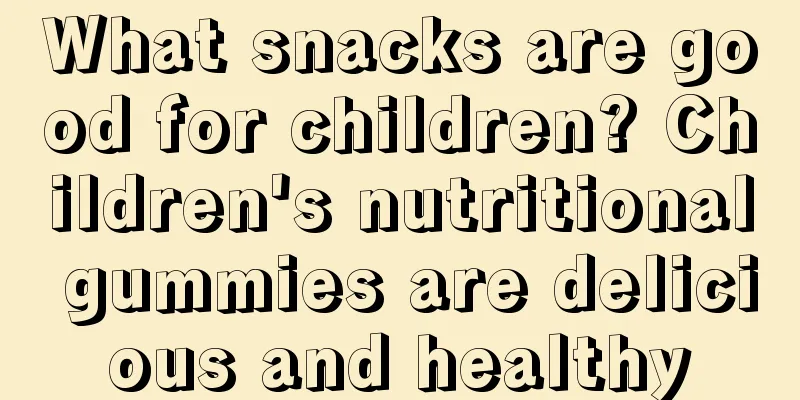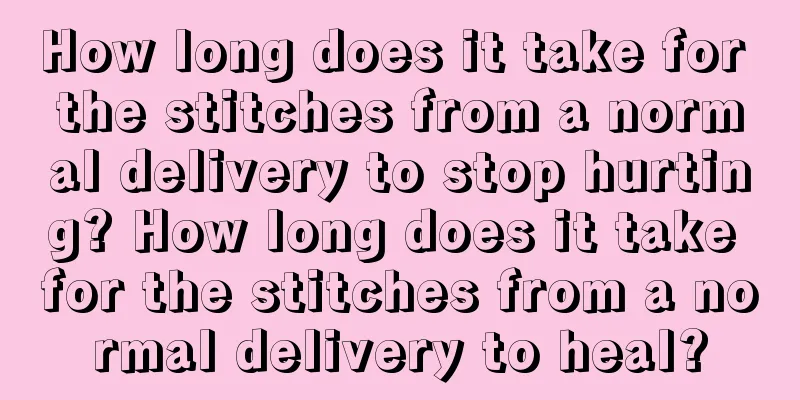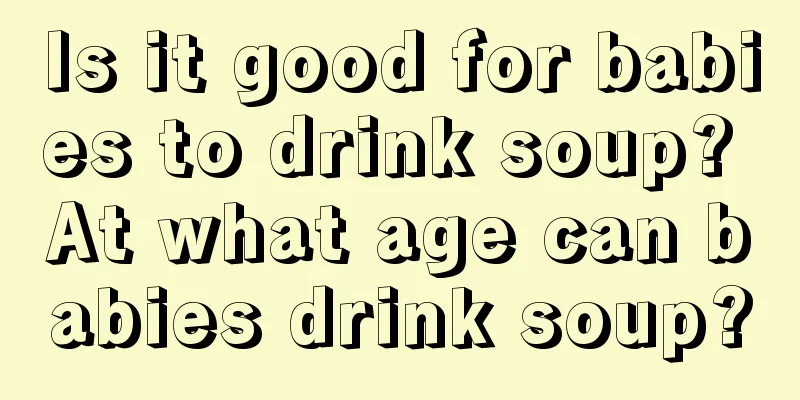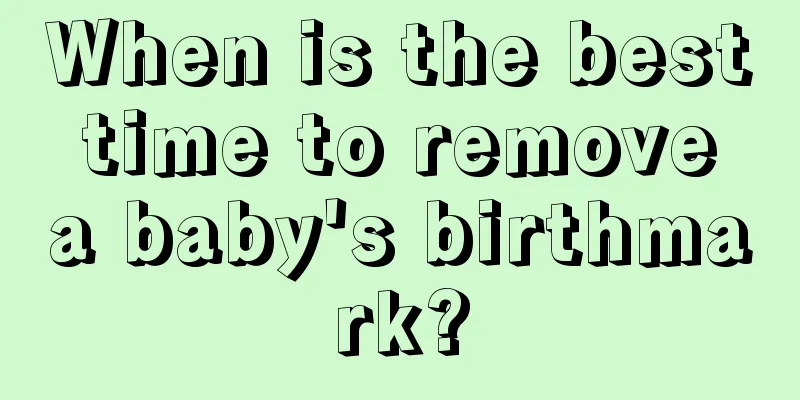36-48 months old: How to strengthen children's reading and learning ability
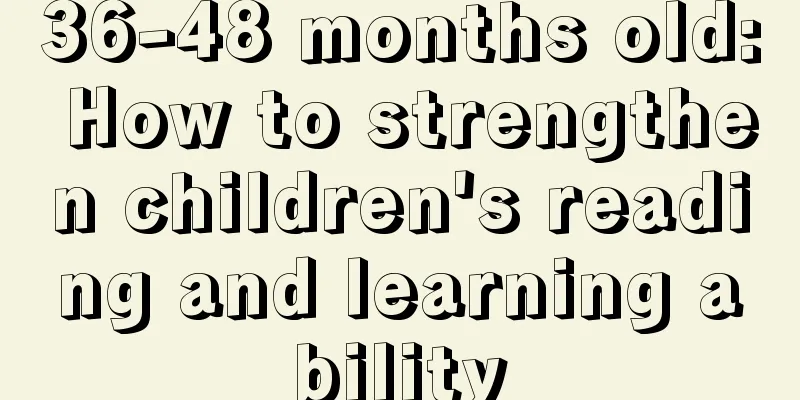
|
When three-year-old children enter kindergarten with their schoolbags, their lives and their parents' will be a new beginning. How can we continue to help children strengthen their reading and learning abilities at the age of three? At this age, reading is not just as simple as reading picture books. Language expression, thinking training, picture description, etc. are all abilities that need to be trained at this stage. So how should we start at this stage? Reading ability of three-year-old childrenPrerequisite: The reading training program has been started before the age of 3. If the child has just started reading the first book at the age of 3, the learning process will automatically regress to the content for 30-36 months of age. 1. They will accurately tell you the books they want to read with their parents. At this stage, they may also have a fanatical love for a certain book. It doesn’t matter, just satisfy them. 2. Occasionally they pick up a book, and even if they don’t know the words, they will “read it out” like we read to them, encouraging them to continue. 3. I like to tell them stories, telling them about a story they have heard before, how the story began, who the protagonist in the story is, their favorite animal in the story, anyway, I occasionally act like a chatterbox. The needs of three-year-old children1. Ask questions endlessly, start the "100,000 Whys" state, ask questions in life, ask questions while reading, and ask questions immediately when there is something you don't understand when listening to a story. 2. They can memorize the details of familiar stories by heart. If we repeat the story and miss one or two things, the children will remind us of the mistake/omission immediately. 3. They can describe how they like a book, such as animal-themed, healing-themed, warm-themed, etc. In short, they have their own preferences. Although sometimes the expression is not very clear and there are some errors in the sentence grammar, it does not matter. Encourage them to express themselves. It is because of this kind of reading and expression that children's language expression, vocabulary accumulation, and logical thinking ability will be more comprehensively developed. Parents' staged reading action guidance suggestionsChildren may behave differently, but through observation of many children around me, basically every child will have some of the above characteristics, so what should parents do? 1. Standard prerequisites for reading at any stage: a quiet environment, no distractions, away from computers, mobile phones, etc., and some storybooks that children like. 2. Encourage children to express themselves and ask them to talk about pictures or stories in a book. 3. Respond to any questions and answers of the child. Encourage the child's statements regardless of whether they are good or bad. If we do not understand the child's questions, we should answer them in a timely manner. Do not fool them or deal with them perfunctorily. Children will imitate and refer to the process of looking up information and drawing conclusions with them. 4. Play the roles in the book through performance, use different voices to express the mood changes of the characters in the book, etc., so that children can feel a rich and three-dimensional story as much as possible. 5. The pictures in many books are good learning materials. Make full use of them and ask your children many questions about the pictures. How many kittens do you see? What is the blue object? Where is the moon hiding? 6. Discuss emotions and feelings with your child. Why does the kitten look unhappy? Tigger jumps so high, he must be very happy. The bear looks unhappy, why is he unhappy? 7. When reading with your children, count the different colors, shapes, and numbers in the book. Basic math learning can begin at this stage. There are also many suitable math picture books that can be studied together. The learning of math content such as color, size, shape, comparison, etc. can be extended from books to daily life. If there is such a training process, the child's math ability will definitely be outstanding in the future. What is early childhood education?First of all, early education is not early education Early childhood education is becoming more and more well-known, but it is always used in a narrow sense. It is obviously inappropriate to equate early childhood education with learning the content of exam-oriented education. To be more precise, early childhood education refers to the early education that each child needs when he or she is developing individually: family education during the period of 0 to 6 years old, not early education. The growth cycle of a child has its own rules. As the saying goes, childhood only comes once and is precious. |
>>: What are some good sleep songs for babies?
Recommend
What are the symptoms of neonatal colic? What does neonatal colic look like?
Newborns cannot express themselves verbally soon ...
Can a mother still breastfeed if she has a cold? What should I do if I catch a cold while breastfeeding?
If breastfeeding mothers catch a cold, they must ...
Do electric toothbrushes damage gums? Do electric toothbrushes damage tooth enamel?
Electric toothbrushes can also be used by the eld...
Can Blue Moon fabric softener be used as laundry detergent? How to use Blue Moon fabric softener?
Putting some softener in the laundry can make the...
What preparations do mothers who want to have a second child need to make?
The two-child policy has been implemented in my c...
What supplements should women take after miscarriage to help their bodies recover quickly?
Some women don’t even know they are pregnant. The...
What to do if your baby crawls around? How to avoid danger
When the baby is seven or eight months old and st...
A naughty child pours dirty water into the infusion bottle. How to discipline this naughty child?
Recently, an old lady in Zhengzhou, Henan Provinc...
What should pregnant mothers eat to promote the development of the fetus' brain? The best time for the fetus to supplement its brain
Pregnant mothers need to pay special attention to...
What is the reason for the newborn baby's oily hair? What should I do if the newborn baby has oily hair?
The baby is only 2 weeks old and needs proper nut...
What if the milk powder is not easy to dissolve? What if the milk powder is not easy to dissolve?
Milk powder is a nutritious drink that everyone i...
Can pregnant women eat rice noodles? Does it have any effect on pregnant women?
Pregnant women can eat rice noodles. Rice noodles...
What does it mean to have an IUD inserted? What are the precautions to take after having an IUD inserted?
"IUD" is the most commonly used long-te...
Why does my baby shake his head when he sleeps? Does my baby's shaking his head when he sleeps mean he is calcium deficient?
Some abnormal behaviors of babies when they sleep...
Can babies with eczema take a bath? Can newborns with eczema take a bath?
Can newborns with eczema take a bath? Today, I wi...

